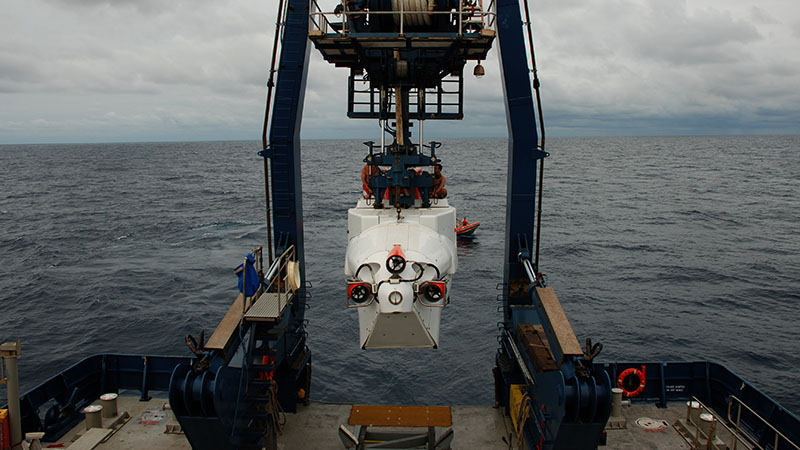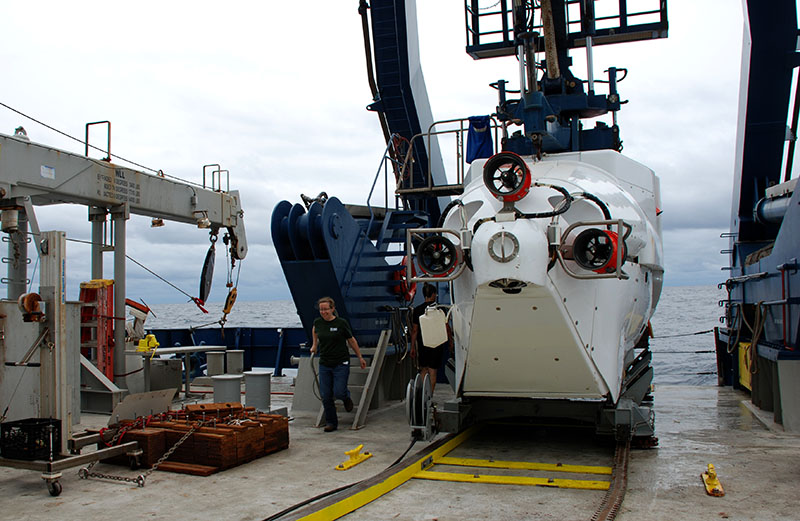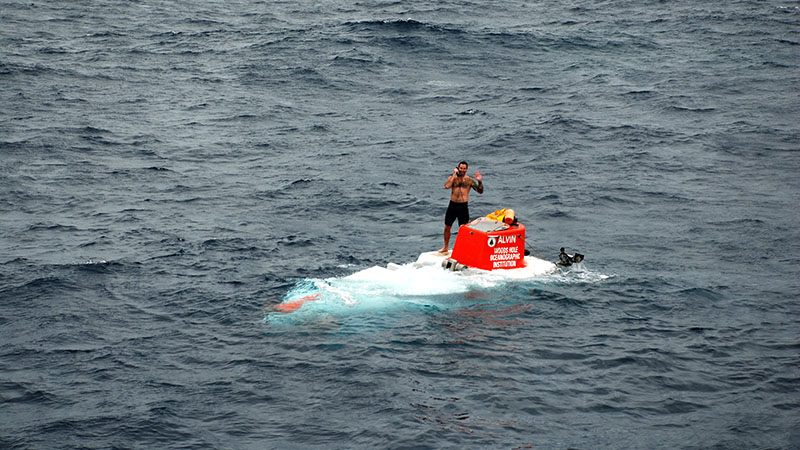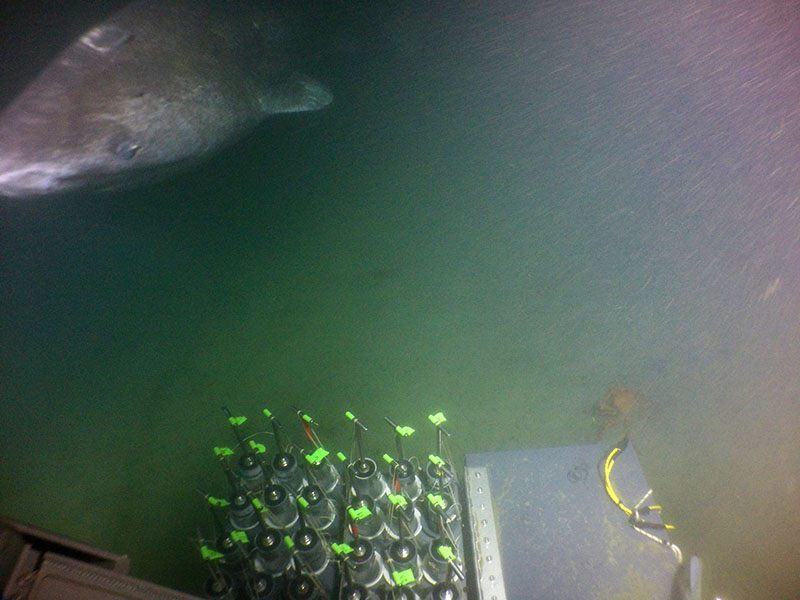
By Caitlin Adams, Web Coordinator, NOAA Office of Ocean Exploration and Research
August 20, 2018

Swimmers Todd Litke and Drew Bewley sit atop Alvin as its lowered from the A-frame into the water. Once in the water, the swimmers are responsible for disconnecting the lines and communicating with the pilot inside to ensure that the sub is ready for descent. Image courtesy of DEEP SEARCH 2018 - BOEM, USGS, NOAA. Download larger version (jpg, 4.4 MB).
The first Alvin dive of DEEP SEARCH is complete! We had an interesting dive on Wilmington Canyon, which provided an excellent opportunity to dive somewhere entirely unexplored. After a successful and smooth first launch of the cruise, those onboard quickly learned that the dive would be challenging. The currents ripping through the canyon were strong—in some places, as strong as three knots—making it difficult to move through the canyon. The visibility was also incredibly reduced, and the team often couldn’t even see the sampling basket attached to the front of the submersible. There’s a GoPro mounted on the front of Alvin, and you can get a sense of the conditions by watching the time-lapse video below.
This time-lapse video captures the approximately four-hour Alvin dive in just 50 seconds. Video courtesy of Dan Fornari, Woods Hole Oceanographic Institution. Download larger version (mp4, 69 MB).
These canyons have previously been described as being relatively inactive, but today’s dive showed that this is definitely not always true. Because the conditions were so difficult, and because there was a lot of fishing line in the area, the tough call was made to recover the submersible early. U.S. Geological Survey project chief Amanda Demopoulos, the first DEEP SEARCH scientist to dive on this cruise, surfaced with one pushcore of sediment and five Niskin bottles of water to process.

Amanda Demopoulos descends from the submersible after the first dive. Image courtesy of DEEP SEARCH 2018 - BOEM, USGS, NOAA. Download larger version (jpg, 3.7 MB).

Swimmer and R/V Atlantis crew member Ronnie Whims stands atop Alvin after it surfaced for recovery. Ronnie communicates with the team still inside the sphere via phone until the sub is secured and ready to be hauled aboard. Image courtesy of DEEP SEARCH 2018 - BOEM, USGS, NOAA. Download larger version (jpg, 5.5 MB).
One of the biggest accomplishments of the dive today was not related to a scientific discovery—pilot-in-training Danik Forsman completed the final dive of his training program and will soon be a certified Alvin pilot. Pilot Bruce Strickrott led yesterday’s dive, but Danik spent much of the dive in the pilot’s seat, driving the sub and manipulating the robotic arms to adjust camera angles and collect samples. Danik first joined the Alvin program in early 2016 as part of the mechanical team and began the pilot training program toward the end of that year. With a background in commercial and scientific diving, Danik was able to draw on his experiences diving in the open ocean as he transitioned to a career with the Alvin team. After 14 pilot-in-training dives, or PIT dives as they’re more commonly known, and sitting for board examinations with both Alvin scientists and pilots, Danik has two more examinations ahead of him: engineering boards to test his knowledge of all the onboard control systems and his final boards with the U.S. Navy. Only the Navy can grant him the official title of Civilian Naval Pilot. After that, he’ll begin piloting dives independently in October, when Erik Cordes is back aboard R/V Atlantis for an National Science Foundation-funded expedition to the Costa Rica Margin.

Though the dive team wasn’t able to see much given the conditions, pilot-in-training Danik Forsman was surprised to see this six-gill shark approach his viewport as he was triggering the Niskin bottles. Image courtesy of Dan Fornari, Woods Hole Oceanographic Institution. Download larger version (jpg, 5.4 MB).